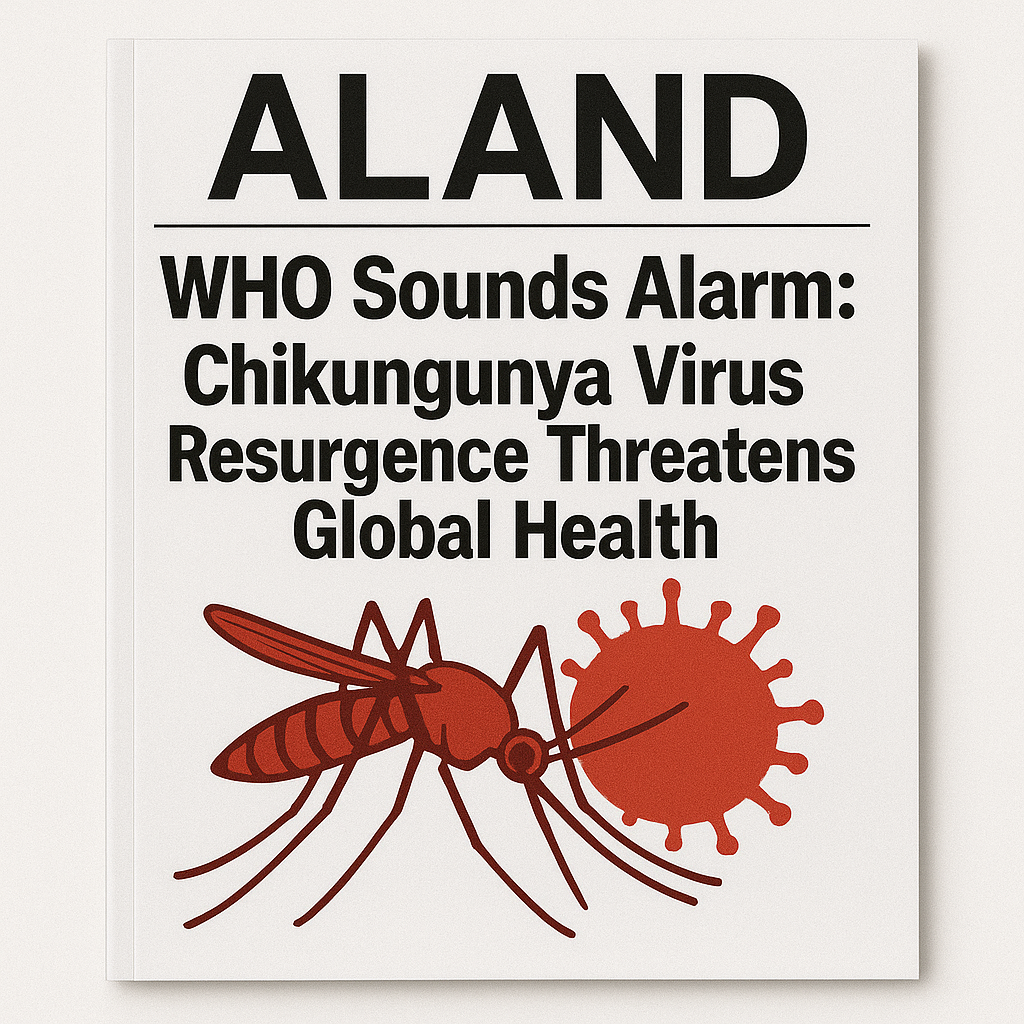WHO Sounds Alarm: Chikungunya Virus Resurgence Threatens Global Health
Published Date: 23 Jul, 2025
July 23, 2025
The World Health Organization (WHO) has issued a stark warning about the resurgence of the chikungunya virus, a mosquito-borne illness that has re-emerged with alarming speed and geographical spread. The current outbreak echoes the devastating epidemic of 2004–2005, raising concerns of a potential global health crisis.
Chikungunya’s Return: A Global Concern
Since early 2025, chikungunya outbreaks have been reported in several regions, including the Indian Ocean islands of La Réunion, Mayotte, and Mauritius, as well as parts of Africa, Southeast Asia, and Europe. Notably, France has reported approximately 800 imported cases and a dozen local transmission episodes since May, indicating the virus’s expanding reach. Italy has also recorded local cases, highlighting the increasing risk in Europe.
Understanding Chikungunya: Symptoms and Transmission
Chikungunya is transmitted to humans through the bites of infected Aedes mosquitoes, primarily Aedes aegypti and Aedes albopictus. Symptoms typically appear 2–12 days after infection and include high fever, severe joint pain, muscle pain, headache, nausea, fatigue, and rash. While the disease is rarely fatal, the joint pain can be debilitating and may persist for months or even years.
At-Risk Populations
The WHO estimates that approximately 5.6 billion people across 119 countries are at risk of chikungunya infection. Vulnerable groups include the elderly, infants, and individuals with underlying health conditions, who may experience more severe symptoms and complications.
Prevention and Control Measures
There is no specific antiviral treatment for chikungunya; management focuses on relieving symptoms. Prevention relies on vector control and personal protection measures such as using insect repellent, wearing long-sleeved clothing, and eliminating mosquito breeding sites. The WHO emphasizes these strategies to curb the virus’s spread.
Vaccine Development and Safety Concerns
In response to the resurgence, vaccine development efforts have accelerated. Two chikungunya vaccines—Ixchiq and Vimkunya—have been approved by major regulatory agencies. However, temporary suspensions have been issued for their use in older populations due to reports of adverse effects, including neurological and cardiac issues. Use of Ixchiq is paused for individuals over 65, and recommendations urge caution for those over 60.
Global Response and Preparedness
The WHO is working closely with national health authorities to enhance surveillance, strengthen vector control programs, and raise public awareness about chikungunya prevention. International cooperation remains essential to prevent further spread and protect vulnerable populations worldwide.
Date: 23 Jul, 2025

